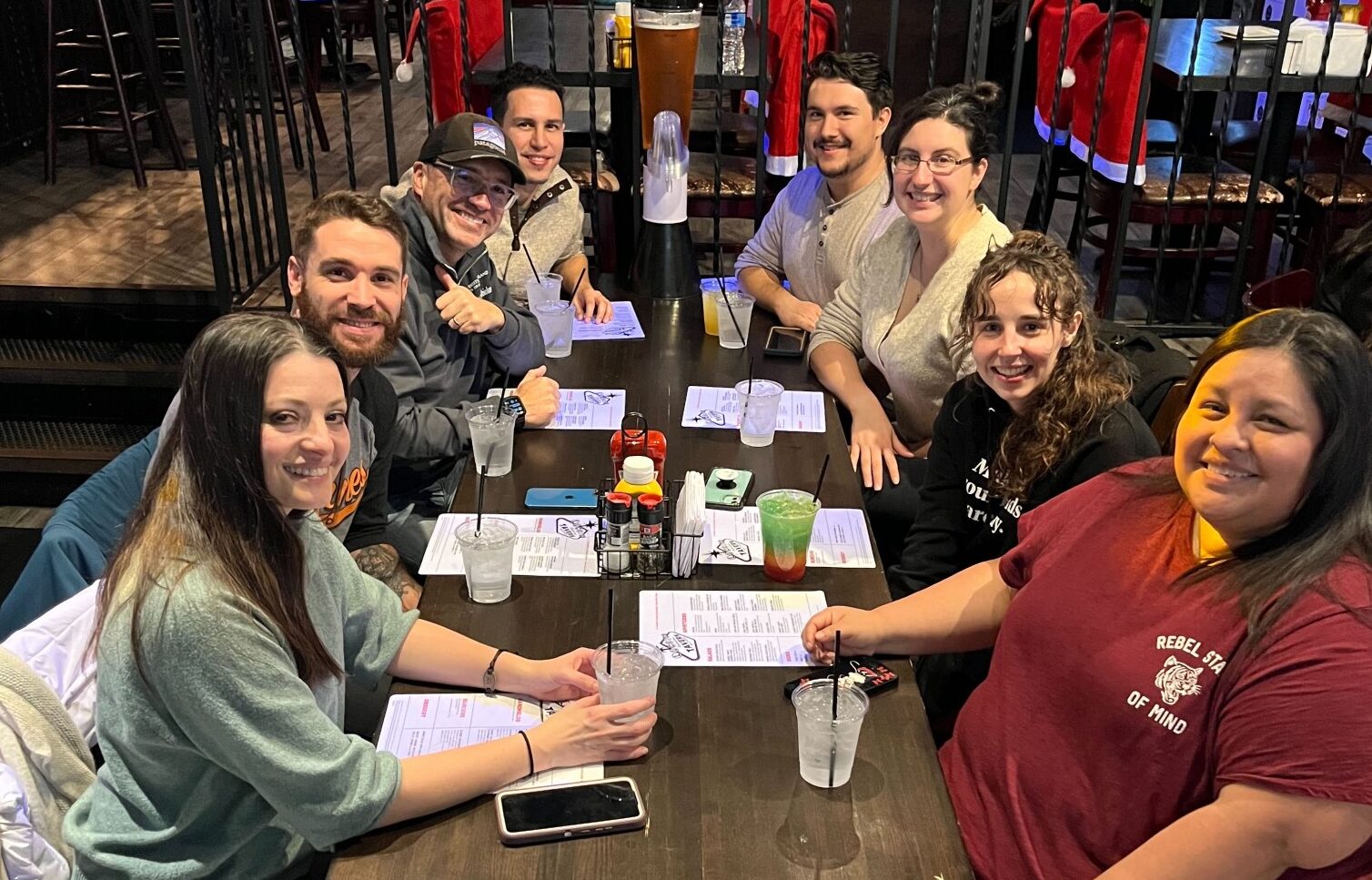People
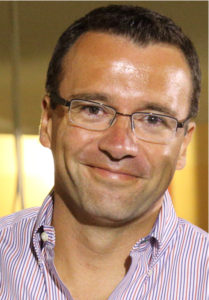
Joseph Cheer, Ph.D.
Principal Investigator
Joe’s main interests lie in the elucidation of the neurobiological effects of cannabinoids in both natural and drug-induced reinforcement. Joe graduated from Universidad de los Andes (Bogota, Colombia) with a B.S in Biology in 1996. He joined the Laboratory of Neurobiology and Experimental Microsurgery at the Colombian Neurology Foundation where he worked for 1 year investigating CNS regeneration using oncogene-tranfected cells and sciatic nerve co-grafts in motor cortex-lesioned animals. Joe received his Ph.D from the University of Nottingham (Neuroscience Section of the School of Biomedical Sciences) under the direction of Profs Charles Marsden and Dave Kendall and Dr Rob Mason. Joe’s graduate research focused on the behavioral and electrophysiological effects of cannabinoids.
Joe’s first postdoc (2000-2002) was spent in Sam Deadwyler’s laboratory (Wake Forest University School of Medicine) where he conducted research on multiple single-unit electrophysiology in freely moving organisms. Joe joined Mark Wightman’s lab as a post doc in fall 2002 at the University of North Carolina (Chapel Hill). There, he established the use of a microelectrode that allows for the simultaneous measurement of single-unit activity and dopamine release via fast-scan cyclic voltammetry.
Joe is currently a tenured professor at the University of Maryland School of Medicine, where he directs undergraduate, graduate and postdoctoral projects related to several neurophysiological and neurochemical aspects of endogenous cannabinoid signaling in intact systems.
In his spare time Joe likes to enjoy the outdoors with his two daughters, his wife and his rescue dog, Rusty.
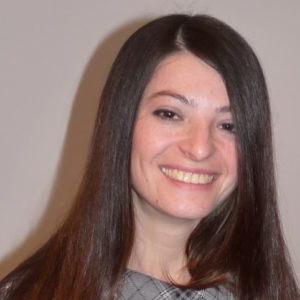
Iness Gildish, M.S.
Laboratory Manager
Neurobiology and psychology became Inna’s main interest during high school and she knew she wanted to be a researcher in this area. Inna earned her B.S in Molecular Bio-Chemistry from Technion, Haifa, Israel in 2008. During her studies at the Technion she met prof. Kobi Rosenblum whose research in taste learning and memory mechanism dazzled her so she decided to continue her education in his lab.
A year later she joined prof. Kobi Rosenblum’s lab in Haifa University as a M.S. student. During this time she worked with transgenic mice to determine how regulation of translation elongation involved in taste memory formation and its consolidation. By using behavioral, molecular, and imaging techniques, she was able to make progress in understanding the relationship between regulation of protein synthesis during memory consolidation and behavioral output. Inna joined the Cheer Lab in December 2011 to learn about electrochemical and neurophysiological recordings in behaving animals, and to better understand the endocannabinoid system.
Inna’s future goals are to complete a Ph.D. in neuroscience. In her spare time she enjoys reading, watching movies, photography and traveling.
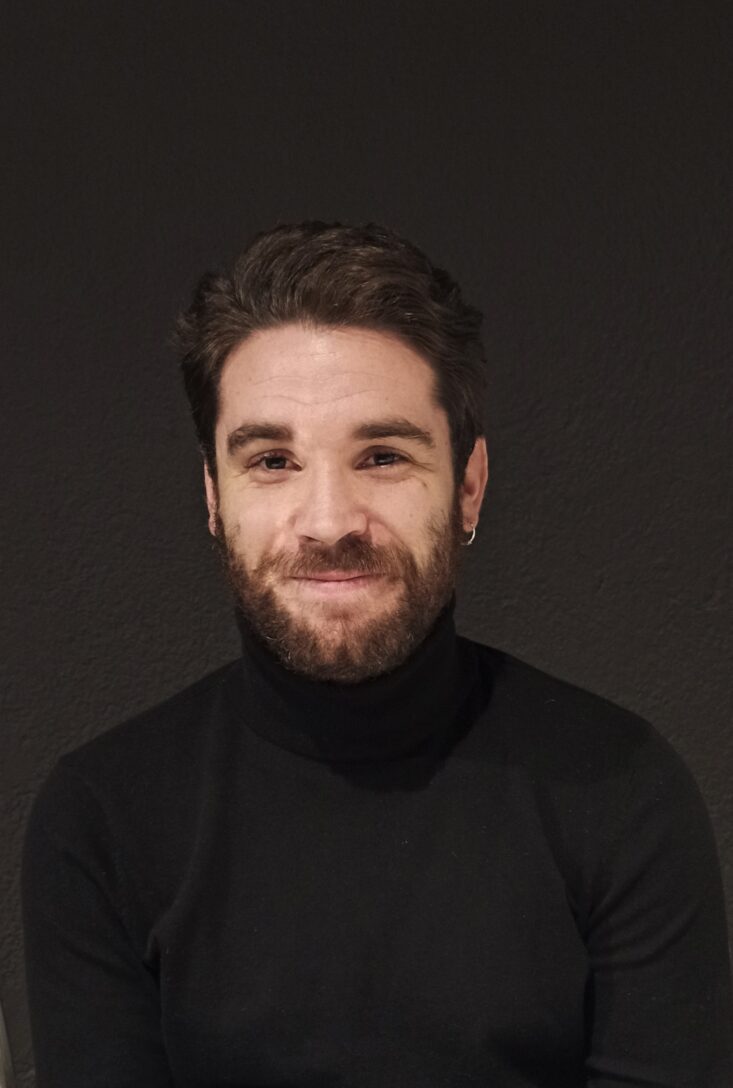
Miguel Angel Lujan Perez, Ph.D.
Postdoctoral Fellow
Miguel earned his B.Sc. in Psychology from University Jaume I, Castellon, Spain in 2014. During his undergraduate studies, Miguel participated as an undergraduate research staff in Dr. Laura Font’ and Dr. Raul Pastor’s lab at the Department of Basic and Clinical Psychology and Psychobiology. Following his B.Sc. studies, Miguel completed an M.Sc. in Neuroscience at the Dr. Olga Valverde’s Neurobiology of Behaviour Group in the University Pompeu Fabra and the University of Barcelona, Spain in 2016. His M.Sc. research was focused on the consequences of synthetic cathinone adolescent exposure in the reinforcing effects of cocaine in adulthood. During this period, Miguel mastered the mouse intravenous drug self-administration paradigm.
In 2016, Miguel joined Dr. Olga Valverde’s lab at University Pompeu Fabra, Barcelona. There, he was awarded with a Research and Docent Staff scholarship by the Ministry of Education of the Spanish Government to develop his Ph.D. studies in Biomedicine. In 2020, Miguel obtained his Ph.D., focused on understanding the viability of cannabis derivative substances (mainly cannabidiol) as a therapeutical strategy to reduce cocaine consumption and excessive reinforcement.
In October 2020, Miguel joined Dr. Joseph Cheer’s lab at the University of Maryland as a Postdoctoral Fellow. Here, he will investigate the pharmacological and physiological basis of motivation in a transgenic mouse model of reinforcement learning, with a particular emphasis on endocannabinoid signaling using electrophysiological and optogenetic approaches.
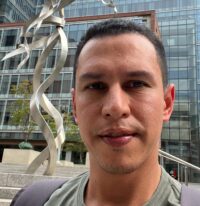
Fredy Castro-Alvarez, PhD.
Postdoctoral Fellow
Fredy obtained his undergraduate degree as a microbiologist and bioanalyst from the University of Antioquia (Medellin, Colombia) in 2006. He completed his master’s and doctorate in biology with an emphasis on cellular and molecular neurobiology at the Antioquia Neuroscience Group under the mentorship of Dra. Cardona-Gomez in 2014. He was an associate professor and researcher in the School of Health Sciences at Remington University Corporation (Medellin, Colombia) for seven years. His work has focused on understanding the cellular and molecular mechanisms that underlie nervous system pathologies, such as cerebral ischemia, Alzheimer’s disease, multiple sclerosis, and mental disorders.
He joined the University of Maryland Baltimore as a postdoctoral researcher in 2023 to conduct preclinical studies evaluating huntingtin lowering in a murine model of Huntington’s disease and its effect on motor symptoms and behavior.

Antonio Figueiredo, B.S.
Graduate Researcher
Antonio graduated in 2016 from the University at Buffalo with a B.S. in
Biological Sciences, concentrating in Neuroscience and Cellular & Molecular
Biology, and a B.A. in Chemistry. Upon graduating, he accepted a research
position at the University at Buffalo Research Institute on Addictions under Dr.
Panayotis Thanos. Antonio’s research investigated the role of fatty acid-
binding proteins as transporters of endocannabinoids. This experience helped
shape Antonio’s interest in examining the intersection of endocannabinoids
and disorders of motivation.
To further his training, Antonio joined the University of Maryland School of
Medicine’s Science Training for Advancing biomedical Research Post-
baccalaureate Research Education Program (STAR-PREP). Under the
guidance of Dr. Joseph Cheer, Antonio learned various techniques to
measure neuronal signaling and neurotransmitter release in vivo. This
experience continued to build on his understanding of motivation and reward
systems.
Currently, Antonio is a Ph.D. candidate under Dr. Cheer’s mentorship.
Here, he continues his research investigating the role of cannabinoid type 1
receptors on hippocampal-cholinergic terminals in regulating motivation.
Following his Ph.D. training, Antonio wishes to pursue a post-doctorate
fellowship and become a principal investigator.
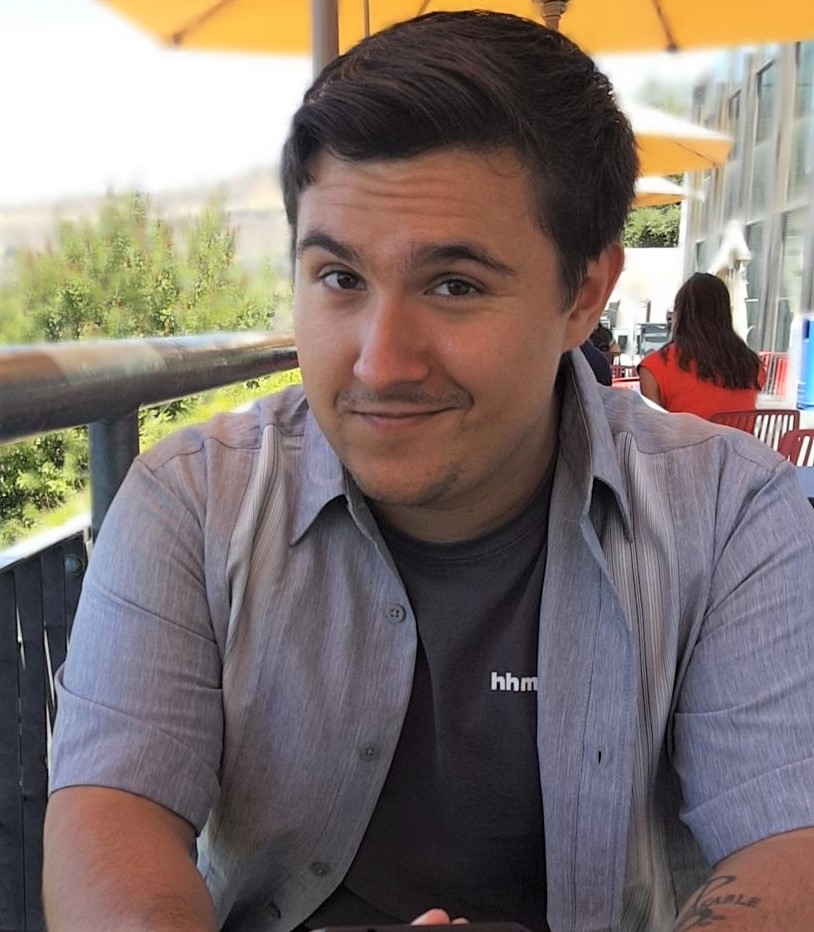
Sean Ryan, B.S.
Research Specialist
Sean graduated from Roanoke College in 2018 with a B.S. in Biology and a concentration in Neuroscience.
During his time at Roanoke, Sean worked as a researcher in the Lassiter Lab studying developmental biology and endocrinology in zebrafish. For his senior thesis, he designed and implemented new equipment and protocols that enabled the Lassiter lab to generate genetic models of human disease using CRISPR/Cas9. After graduation, Sean moved on to the Connectome Annotation Team at Howard Hughes Medical Institute’s Janelia Research Campus, working on the FlyEM project. The team utilized advancements in electron microscopy, machine learning, and neuroanatomical visualization to help create the largest neural wiring diagram to date in any organism.
Sean joined the Cheer Lab in November 2020. He is studying the influence of endocannabinoid signaling on serotonergic control mechanisms in the ventral tegmental area (VTA) – nucleus accumbens reward circuit, analyzing how the integration of the bidirectional anterior cingulate cortex – VTA circuit informs behavior in experiential and social contexts, and characterizing the effects of CB1 receptors on astrocytes that modulate the excitatory and inhibitory inputs to dopamine neurons of the VTA.
In the future, Sean plans to attend graduate school to earn a Ph.D. in neuroscience or genetics.

Reana Young-Morrison, B.S.
Research Technician
Reana graduated from University of Vermont in 2020 with a BS in Neuroscience and a BA in Spanish.
During her undergraduate studies Reana she did clinical research with Autism. For her senior thesis she developed a project aimed at understanding language processing and comprehension in Autism. The study focused on determining an individuals ability to distinguish between phonemes and complex tones. Understanding differing levels of attenuation and MMN amplitudes sought to demonstrate and pinpoint language deficits in Autism.
In the future she hopes to attend graduate school for a PhD in neuroscience.

Ella M. Rocha, B.S.
Research Technician
Having spent most of her childhood following her dad while he completed his PhD in Biochemistry, Ella grew in love with science and dreamt of becoming a scientist. Following this path she was awarded a scholarship (in a cooperation between Brazil-Peru governments) to pursue her bachelor’s degree in Biomedical Sciences at the Universidade Federal de Sao Paulo – UNIFESP. Where she has the joy to be the first foreign student enrolled in this program to successfully graduate in Biomedical Sciences.
During her undergrad Ella received the PROMISAES fellowship and because her passion for science she joined from her first year as a volunteer researcher and rotated in laboratories of the Department of Physiology, Biophysics, Pharmacology and in the Center for Development of Experimental Models (CEDEME-UNIFESP). These allowed her to accumulate as much experience as possible, until she was captivated by the study of behavior and substance use disorders. For her senior thesis she carried out a project aiming to evaluate if environmental enrichment could reverse the high impact that food restriction stress has over behavioral sensitization in substance abuse disorder.

Erin McDonnell, B.Sc.
Research Technician
Erin Graduated from Roanoke College in 2019 with a B.Sc. in Psychology, concentrating in Neuroscience.
Throughout her time at Roanoke, she rotated through many research labs before finding a thesis project idea. Her dual-departmental thesis examined the effects of a biocide aquatic toxicant on CNS development and anxious-state behavior in Danio rerio. This project sparked a love of investigating neurodegeneration, pharmacology, and how neuronal networks interact to affect behavior. In 2020, she accepted a research tech position at Wilmer Eye Institute with The Johns Hopkins School of Medicine exploring the role of glial cells, RPE, and mast cells in the neurodegenerative optical disease, age-related macular degeneration. Her work there utilized rodent models and donated human tissues along with a variety of imaging and cell culture techniques.
Now that she is a part of the Cheer Lab, she is excited to learn about endocannabinoid and neurotransmitter influence on the brain, motivated behavior and disease. Her future plans include going to graduate school to earn a Ph.D. and continuing to work in disease research and imaging.

Sophie Pilon
Undergraduate Volunteer
At her community hospital she has been a volunteer for the past four years, and has been part of a variety of departments. She is also a campus brand ambassador for Margaritaville University, the student ambassador program for the Margaritaville brand.
This is her first research experience and she hopes to learn about the research process and gain exposure to neurology. She would like to attend medical school in the future.
Interested in joining the lab? Contact us about potential openings.
Alumni
| Years | Alum | Current Position |
|---|---|---|
| 2009 – 2011 | Carien Lansink, Ph.D. | Associate Professor, University of Amsterdam |
| 2009 – 2012 | Giovanni Hernandez, Ph.D. | Jasper Research Fellow, University of Montreal |
| 2010 – 2013 | Roger Cachope, M.D. | Director of Systems Neurobiology, CHDI, adjunct Assistant Professor, UMSOM |
| 2010 – 2013 | Erik Oleson, Ph.D. | Associate Professor, University of Colorado, Denver |
| 2013 – 2014 | Thibaut Sesia, Ph.D. | Group Leader, University of Cologne |
| 2013 – 2019 | Jen Wenzel, Ph.D. | Assistant Professor, University of San Diego |
| 2014 – 2020 | Dan Covey, Ph.D. | Assistant Professor, Lovelace Research Institute, University of New Mexico |
| 2014 – 2021 | Natalie Zlebnik, Ph.D. | Assistant Professor, University of California, Riverside |

